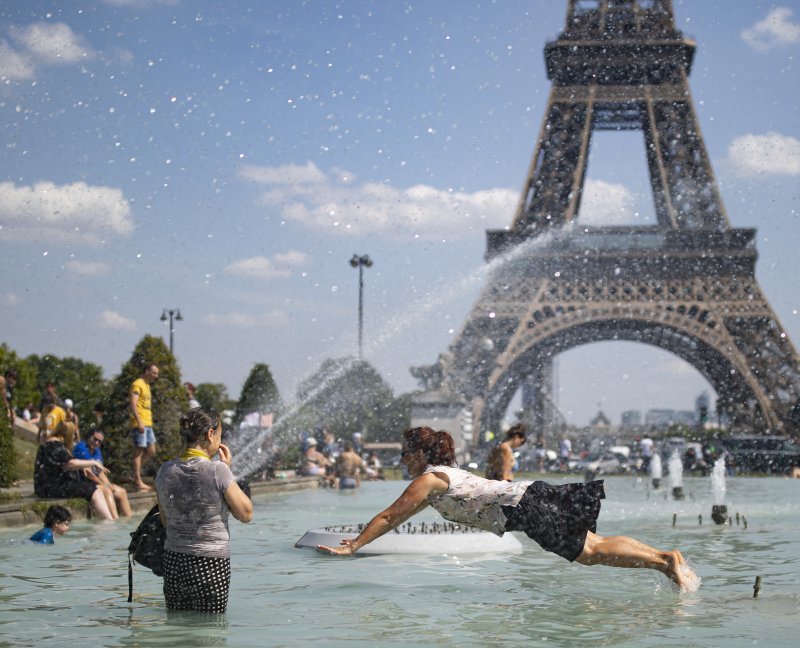People try to cool down Tuesday in fountains across from the Eiffel Tower in Paris, France. Photo by Ian Langsdon/EPA-EFE
June 26 (UPI) -- Paris is taking unprecedented action to keep vehicles from polluting the atmosphere as the city -- and other parts of Europe -- grapples with a severe heatwave that's already pushed the mercury well past the 100-degree mark.
Leaders in the French capital have barred the most polluting vehicles from the road. Only gasoline vehicles certified on one of the lowest three emissions levels -- Crit'air 0, 1 and 2 -- will be allowed on the road with electric vehicles. The city has never before taken such preemptive action to keep cars off the roads.
"You have to face reality, which is the increase in air pollution when there is a heatwave, like the one we are experience at the moment," France's Minister of Ecological Transition Francois de Rugy said.
Level 5 vehicles are already banned in Paris, while Level 4 vehicles, which include older diesel cars, will be banned beginning July 1.
The last major heatwave in Paris 16 years ago killed thousands, and the World Meteorological Organization has cautioned this heatwave can also become deadly. Forecasters say the warm air mass started in Africa and is working its way north through Spain and the Czech Republic.
Paris is also reducing the speed limit on highways and roads to reduce pollution.
The combination of a storm stalling over the Atlantic Ocean and high pressure over central and eastern Europe is pulling very hot air from Africa northward across Europe.
Locations from Madrid to Paris, Belgium, Frankfurt and Berlin can expect a multi-day heatwave, with daily temperatures near or above 90 degrees Fahrenheit. In the hottest locations Wednesday and Thursday, temperatures could surpass the 100-degree mark.
Multiple days of extreme heat, combined with warm nights, will not allow buildings and homes without air conditioning to cool off, creating uncomfortable sleeping conditions and also raising the risk of heat-related illnesses.
The elderly and children are most at risk for such ailments, and outdoor exposure should be limited during the hottest times of the day to reduce the risk of illness.
It may take until this weekend or the start of July for the heat to finally ease across much of western Europe.
Accuweather Senior Meteorologists Eric Leister and Adam Douty contributed to this report















